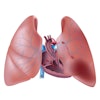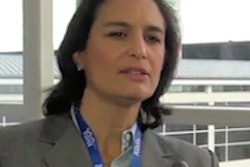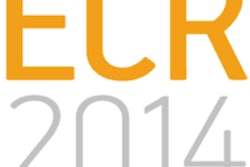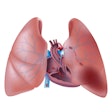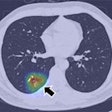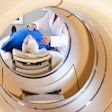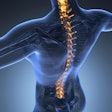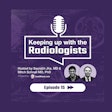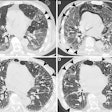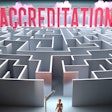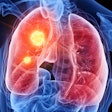After years of discussion and evidence gathering, the U.S. Preventive Services Task Force (USPSTF) this week gave its final approval for annual screening with low-dose CT for individuals at high risk for lung cancer.
In line with its preliminary recommendation issued in July, the task force recommended annual low-dose CT screening for asymptomatic adults ages 55 to 80 who have a minimum smoking history of 30 pack-years or who have quit within the past 15 years.
"Low-dose computed tomography has high sensitivity and acceptable specificity for detecting lung cancer in high-risk persons and is the only currently recommended screening test for lung cancer," USPSTF states on its website.
The "B recommendation," also proposed in July, means the group believes CT screening has a high probability of moderate benefit or moderate probability of moderate-to-substantial benefit in reducing mortality in high-risk individuals. The B recommendation also means that screening must be covered as a preventive service under the Affordable Care Act, potentially paving the way for low-cost population-wide screening.
The B recommendation "validates the tremendous research conducted by the American College of Radiology Imaging Network through the [National Lung Screening Trial]," the American College of Radiology (ACR) wrote in a statement.
Reaction from the medical imaging community for the long-awaited ruling was swift and positive.
"This USPSTF recommendation and expanded use of CT lung cancer screening in high-risk patients represents a landmark step in the battle against the nation's No. 1 cancer killer," commented Dr. Paul Ellenbogen, chair of the ACR Board of Chancellors.
"Today the tide has turned in our battle against lung cancer," said Laurie Fenton Ambrose, president and CEO of the screening advocacy group Lung Cancer Alliance (LCA). "We can and will save tens of thousands of lives. We can and will continue to ensure adherence to the proven best practices to guide the screening, diagnosis, and treatment of lung cancer. We can and will use this to accelerate research into all aspects of lung cancer."
In February 2012, LCA developed its National Framework for Excellence in Lung Cancer Screening, aimed at preparing centers across the U.S. to screen for lung cancer using best practices.
The USPSTF recommendation is on par with previous recommendations for breast, colon, and cervical cancers, for which survival has increased dramatically following implementation of screening recommendations for those diseases, Fenton Ambrose said in her statement.
ACR said it is in the process of developing CT lung cancer screening Appropriateness Criteria and corresponding practice guidelines and standards, which will be completed in the coming months.
"We are working to complete practice guidelines that cover how lung cancer screening CT exams are performed, interpreted, and results communicated," ACR wrote. "We are also working on a lung image database and practice auditing system with an illustrated lexicon, structured reporting, and management recommendations similar to the long-established BI-RADS system used in mammography."
"These materials will help ensure that those who should be screened can be tested regardless of where they live and provide for a robust screening program that can help save as many lives as possible," added Dr. Ella Kazerooni, chair of the ACR Thoracic Imaging Panel and Lung Cancer Screening Committee.
